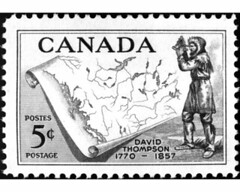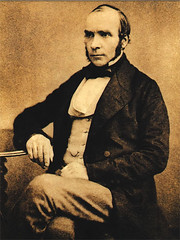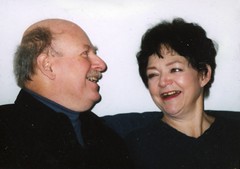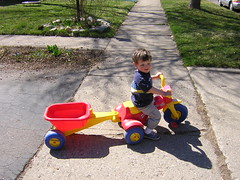I have three children. The first was born in the hospital; the second and third were born at home with midwives.
Before my first was born I never would have thought I'd be having home births. I'm pretty mainstream. My kids are all vaccinated and they go to public school. I'm not an attachment parent. We don't do herbal or homeopathic remedies; we go to the doctor when we're sick. We eat a lot of red meat. And I hate tea.
When we were expecting our first, we did all the mainstream things: obstetrician, Lamaze, hospital tour. I knew what kind of birth I wanted (no medication, as little intervention as possible), but did not even bother to write a birth plan. My plan was to say "no thanks" to the doctors if they offered me, say, an IV. What could go wrong? Shoot, those brand-new private labor/delivery/recovery/postpartum all-in-one rooms each came with their own Jacuzzi. I was going to give birth in style!
(As an aside, why did I want no medication and as little intervention as possible? I know plenty of women who think epidurals are the greatest thing since sliced bread. But I, of course, wanted to be like Ayla -- see
earlier post on that topic. Plus, that stuff can be bad for the baby.)
When my labor started and we went to the hospital, I realized almost immediately that it was the wrong place to be. I had not believed that I, of all people, would be so vulnerable and powerless-feeling that I wouldn't be able to say "no thanks" to the IV. Or to the fetal monitor, which prevented me from ever setting foot in the lovely Jacuzzi. Or to the Pitocin, the epidural, and the great big episiotomy. It just felt so
wrong! And you want to know something else? Joey was born in the evening. By the time all the excitement had died down (he was the long-awaited first grandchild on both sides) it was around 11:00 at night, and I suddenly realized I was
hungry! Hungry like I'd never felt in my entire life, after all that work. And the cafeteria was closed. The snack bar was closed. There wasn't even a pizza place close enough to deliver. The only food available was a stale sandwich from a vending machine.
So, the next time around, we decided to try a home birth. What a difference! Even though my labor in birth number two was precipitous and at times very scary because the midwife gave me
cytotec, it was still a million times better than being in the hospital. And birth number three, with different midwives who say they never under any circumstances
ever induce, was perfect in every way. And for the record, baby number three's birth weight was 9 lbs 14 oz.
Let me tell you an anecdote from birth number three. My water broke in the wee hours of the morning, and almost immediately after that, I started having short but very regular, even textbook-like, contractions. Early labor. This lasted until Joey and Lena woke up. As soon as they made their appearance, my contractions completely stopped. We had a nice quiet day at home, we talked about the impending event, but nothing happened. Then the kids went to bed, and immediately my labor started up again. A few hours later, Daniel was born.
Isn't that an amazing illustration of the mind-body connection? Joey and Lena were already 7 and 4. They were fairly self-sufficient, at least to the extent that they could get their own snack, play in the yard, walk themselves to the neighbor's house, operate the video remote control, etc. And (she said modestly) they are good kids: interesting, fun, fairly well-behaved, and not especially loud or rambunctious. Having them around that day never felt like an imposition, the way a toddler would have. But EVEN SO, their presence was enough to stop my labor cold in its tracks.
How much worse, then, to be suddenly transferred to a hospital where you are surrounded by noise, strangers, hustle & bustle, weird smells, and medical interventions that are probably unnecessary --
and you aren't even sick! No WONDER the rates of labor inducement-related interventions in hospitals are so high. When you get to the hospital and your labor grinds to a halt, your body is doing what it's supposed to! It's protecting you and the baby. You're supposed to give birth in a cozy, warm, familiar, safe place. If that's not where you are, your adrenaline kicks in, and labor stops. Then the familiar cycle of pitocin-epidural-episiotomy (or c-section) kicks in.
One last anecdote. When Daniel was two or three months old we thought he might have an ear infection (he didn't) and we took him to the ER. Taking his stats, the ER nurse asked me what his birth weight had been. I told her and she said, "Whoa! What was the birth like?" "Oh, it was ter
rific," I replied honestly. She looked at me like I was crazy. She was completely taken aback by my response. And I think that's so sad. It is so sad that practically everyone thinks of birth as this big, scary, complicated medical event that has to be orchestrated to the convenience of a doctor. The reality is, birth -- and I mean heavy labor, and sweating, and pushing -- can be a beautiful experience. A beautiful experience that the mother can take charge of, and control, and own, and remember with tears of joy.
P.S. I was able to have home births because I was otherwise healthy, at low risk for complications, and living near a hospital. If I hadn't met all three criteria, no way would I have done it. And I'm still not comfortable with the herbal remedy thing. Why is the antihistamine in nettle tea (yuk) okay during hay fever season, but not the antihistamine in Chlor-Trimeton?
P.P.S. If you're interested in birth-related blogs, check out my pal
doulicia, and also the awesome midwife
Sage Femme. Terrific blogs, both of them, plus they have more links.









